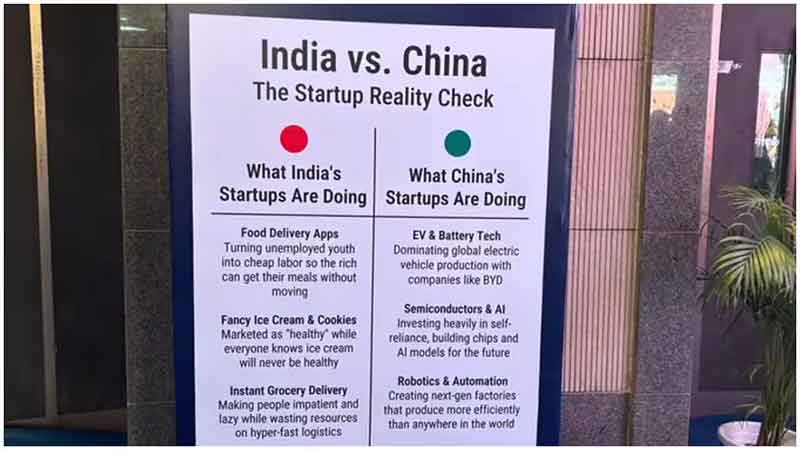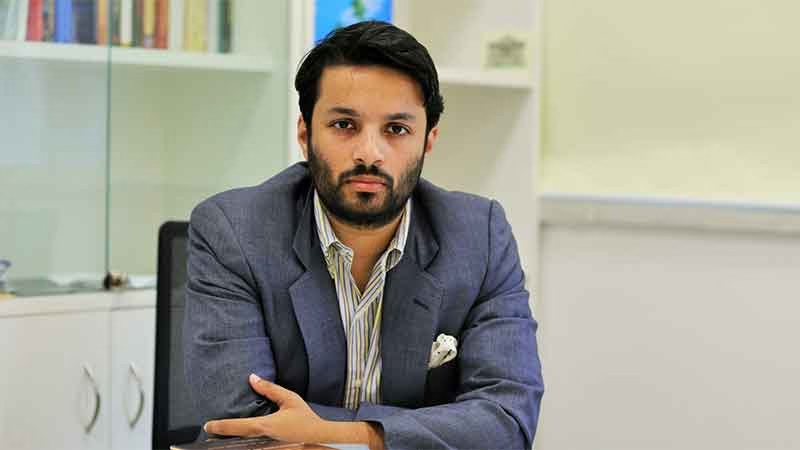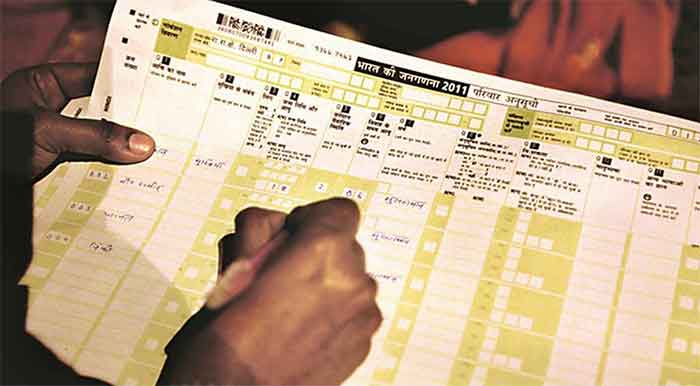
Back in 2020, a brilliant IIT graduate had a simple idea—not a biryani delivery app or “Uber for cows.” He built an app that could autofill IRCTC ticket details faster than their own app. Anyone who has tried booking a tatkal ticket knows how herculean that is. Instead of being celebrated, he was sued by Indian Railways. IRCTC filed a case, and he was arrested. Ironically, Piyush Goyal, then Minister of Railways and now the flagbearer of India’s startup mission, missed a golden opportunity to foster innovation. Fast forward to 2025: At the Startup Mahakumbh, Goyal scolds Indian entrepreneurs for only making food delivery apps and reducing youth to “cheap labour.”
“Are we going to be just delivery boys and girls?” he asked. Well, maybe not, if our labour wasn’t so cheap to begin with. Perhaps the right question is: Why haven’t we fixed our labour laws to ensure dignity and fair wages? After all, it’s this same cheap labour that we flaunt to attract global investors: “Come here, not because we’re skilled or business-friendly, but because we’re cheap and flexible.”
China Was Once Like Us. Then It Changed.
In 1980, India’s per capita income was higher than China’s. By 2000, China had leapt ahead. In 2022, India’s stood at $2,388. China’s? A whopping $12,720. Why? Because China didn’t just talk about innovation — it built an entire ecosystem around it. In 2015, it launched “Made in China 2025” to dominate fields like semiconductors, electric vehicles, AI, and solar energy. By 2025, it had already become the world’s leader in most of these sectors. It didn’t just build a brand; it built factories, funded research, and invested in people. Meanwhile, we’ve spent a decade banning Chinese apps and importing their Diwali lights.
Indian Startups: Running on Hope, Not Help
A founder of a semiconductor startup recently shared his ordeal online. He was eligible for tax benefits—but his application was left pending for two years. When finally rejected with a vague “documents missing” response, a “facilitator” offered to fix it — for a price. So there’s space for bribes, but not for fair process. It’s not just semiconductors. Look at our auto industry. Despite soaring prices, most Indian cars still run on the same 10 engines. Companies update logos and model names—but where’s the innovation? China, by contrast, has over 200 car manufacturers making everything from $600 EVs to luxury vehicles. In India, our cheapest EV starts at ₹7 lakh. Imagine if China’s EVs were allowed to compete here. Who would even glance at ours?
Innovation Requires Investment. We’re Not There Yet.
In 2023, only 5% of Indian startup funding went to deep tech. China? 35%. In 2024, China waived $361 billion in taxes and fees for high-tech firms. It invested $496 billion in R&D. India’s 2025 budget? A modest $23.45 billion earmarked for private-sector-driven R&D. Worse, Indian startups face a funding winter and regulatory nightmares. In China, the state partners with startups. Here, it often becomes a problem.
The Public Sector: India’s Unsung Startup Ecosystem
Let’s not forget what really built India’s industrial base—the public sector. Navratna PSUs once made everything from steel to drugs, ran schools and hospitals, and built entire townships. They’re still holding the economy together: In 2024–25 alone, PSUs gave ₹74,000 crore in dividends. Coal India alone contributed ₹10,000 crore. Yet instead of strengthening these institutions, we’re selling them off to cronies.
Bengaluru’s rise as a tech hub started with PSUs like HAL, BHEL, BEL, and HMT in the 1950s. These laid the foundations of the city’s infrastructure, talent, and ecosystem. And let’s not forget: ISRO’s Mars Mission cost less than the movie Gravity—thanks to public institutions. In China, public sector firms are still thriving. Of the 135 Chinese firms on the Fortune 500 list, 85 are PSUs.
India’s Real Startup Boom: Paper Leaks and Hate Content
While the world builds chips, we’ve become experts in paper leaks. In Rajasthan, a mafia leaked recruitment exam papers and secured government jobs for relatives—86 such fraudulent hires have been suspended.
This paper leak industry has now become a thriving underground economy. Then there’s our other big startup: Hate Influencing. Songs laced with venom, danced to in front of mosques on every major Hindu festival, go viral. This ecosystem has grown so much, even the government now gives “Best Influencer” awards. This is our “deep tech”: we’ve hacked the brain, not the code.
Meanwhile, education spending might be up (₹1.28 trillion in 2025), but school closures, mid-day meal cuts, and caste discrimination still plague the system. Kids may study AI in textbooks, but they’ll be asked to memorize neural networks, not build them.
Subscribe to Our Newsletter
Get the latest CounterCurrents updates delivered straight to your inbox.
So, What Now?
Engineering colleges pump out 15 lakh graduates every year. Only 10% land jobs. The rest? Become content creators, coaching centre tutors, or poll campaign volunteers. That’s our “demographic dividend”: trending on reels while dancing outside mosques. If we’re serious about startups, we must start by investing in our people — in their health, education, dignity, and opportunity. Until then, our greatest innovation may just remain the art of keeping the public distracted.
(Mohd Ziyauallah Khan is a freelance content writer & editor based in Nagpur. He is also an activist and social entrepreneur, co-founder of the group TruthScape, a team of digital activists fighting disinformation on social media.)
















































